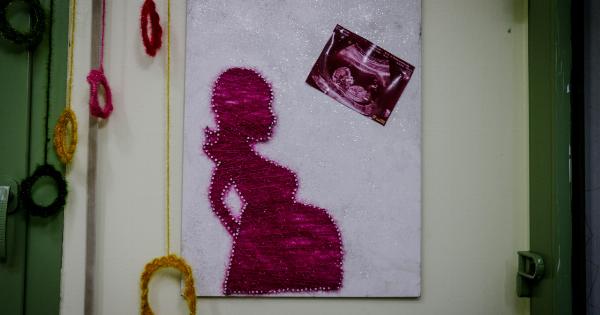Diabetes is a health condition that is caused by the body’s inability to produce enough insulin or use it effectively.
Insulin is a hormone that regulates blood sugar levels by allowing glucose, a type of sugar, to enter the cells and be used for energy. When insulin is not working properly, glucose builds up in the blood, leading to high blood sugar levels, which can lead to a host of health problems, including nerve damage, kidney damage, heart disease, and blindness.
For women who are pregnant, diabetes can be especially dangerous. Gestational diabetes is a type of diabetes that occurs during pregnancy, and it affects between 2% and 10% of pregnancies, according to the American Diabetes Association.
Gestational diabetes usually resolves after pregnancy, but it can cause serious complications for both the mother and the baby if left untreated.
Risk Factors for Gestational Diabetes
There are several risk factors that increase a woman’s likelihood of developing gestational diabetes during pregnancy. These include:.
Previous Gestational Diabetes
If you have had gestational diabetes during a previous pregnancy, you are at higher risk of developing it again during subsequent pregnancies.
Family History of Diabetes
If you have a family history of diabetes, you are more likely to develop gestational diabetes during pregnancy.
Pre-existing Insulin Resistance or Polycystic Ovary Syndrome
If you have insulin resistance or polycystic ovary syndrome (PCOS), you are at higher risk of developing gestational diabetes during pregnancy.
Obesity or Overweight
If you are overweight or obese before pregnancy, you are at higher risk of developing gestational diabetes.
Age
Women who are over the age of 25 are at higher risk of developing gestational diabetes during pregnancy.
Asian, African, Hispanic, or Native American Ancestry
Women who are of Asian, African, Hispanic, or Native American ancestry are at higher risk of developing gestational diabetes during pregnancy.
Symptoms of Gestational Diabetes
Gestational diabetes often has no symptoms, which is why it is important to undergo routine prenatal testing to screen for the condition. However, if you do experience symptoms, they may include:.
- Increased thirst
- Frequent urination
- Blurred vision
- Nausea or vomiting
- Fatigue
- Weight loss despite increased appetite
- Recurrent infections, such as yeast infections or urinary tract infections
If you experience any of these symptoms during pregnancy, it is important to speak with your healthcare provider right away.
Complications of Gestational Diabetes
If gestational diabetes is left untreated, it can cause serious complications for both the mother and the baby. Some potential complications include:.
Large Birth Weight
Babies born to mothers with gestational diabetes are at higher risk of having a high birth weight, which can make delivery more difficult.
Preterm Labor
Women with gestational diabetes may go into preterm labor, meaning they deliver their baby earlier than 37 weeks.
Preeclampsia
Women with gestational diabetes are at higher risk of developing preeclampsia, a condition characterized by high blood pressure and damage to organs.
Low Blood Sugar in the Baby (Hypoglycemia)
Babies born to mothers with gestational diabetes may have low blood sugar levels after birth.
Respiratory Distress Syndrome
Babies born to mothers with gestational diabetes may have respiratory distress syndrome, a condition in which the baby’s lungs are not fully developed and the baby has difficulty breathing.
Type 2 Diabetes
Women who have had gestational diabetes are at higher risk of developing type 2 diabetes later in life.
Preventing Gestational Diabetes
While some risk factors for gestational diabetes, such as age and ethnicity, cannot be changed, there are steps women can take to reduce their risk of developing the condition. These include:.
- Maintaining a healthy weight both before and during pregnancy
- Eating a healthy and balanced diet during pregnancy
- Exercising regularly during pregnancy (with your doctor’s approval)
- Monitoring your blood sugar levels regularly during pregnancy
If you are at high risk of developing gestational diabetes or have had the condition in a previous pregnancy, your healthcare provider may recommend routine screening for the condition starting early in your pregnancy.
Conclusion
Gestational diabetes is a serious condition that can cause complications for both the mother and the baby.
While not all risk factors for the condition can be changed, women can take steps to reduce their risk of developing gestational diabetes during pregnancy. If you are pregnant or planning on becoming pregnant and have concerns about your risk of developing gestational diabetes, speak with your healthcare provider about ways to manage your risk and prevent complications.



























